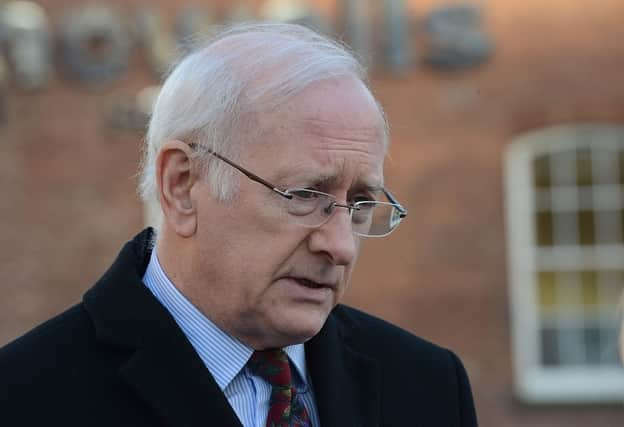Plans to speed up police's 101 number on hold


A new computer system designed to cut out the long delays callers have endured since the non-emergency number was launched was due go live in the next few weeks.
But it has been delayed because of technical difficulties.
SYP have been working on the new Smart Connect system for two years to replace outdated software, which is partly blamed for callers to 101 facing long periods on hold.
Advertisement
Hide AdAdvertisement
Hide AdIt was scheduled for introduction at some point during March or April, but Police and Crime Commissioner Dr Alan Billings has now confirmed that date will be missed, meaning the old system will have to limp on until the issues with the new equipment have been resolved.
No new target date has yet been set, to avoid the potential for creating a deadline which cannot be met — though Dr Billings said the worst problems with callers facing long delays in getting non-emergency calls answered had been answered to a large extent by changes to staffing at the force’s Atlas Court call centre.
When the system is switched on, it should mean the process of dealing with callers’ needs will be smoother and quicker for call handlers, meaning they can deal with a greater volume of calls.
But it will also open up the prospect of callers communicating with the force through different means, including social media, webchats and email, rather than having to use the traditional telephone method.
Advertisement
Hide AdAdvertisement
Hide AdDr Billings said the system was a “big commitment” in spending terms for the force and much time had been spent in the design phase following the decision to move forwards with the system.
One hope is that designers will have managed to “future-proof” the equipment, meaning it should be possible to update it to deal with changing needs and demands from the public in future.
“It was scheduled to be operational in March or April but it has been put back a bit to get it right,” Dr Billings said.
“We don't have a date yet, it will be beyond March or April. That is disappointing but it is such a big thing, we have to get it right.
Advertisement
Hide AdAdvertisement
Hide Ad“The old system is more than 15 years old and has been falling down.”
When it is running, the new system will supply call handlers with more information than they currently have access to, including the caller’s history of contact with the police, which Dr Billings said should make for a more efficient response.
“They should be able to assess much more quickly what a person is asking, what their needs are and how they need to be dealt with,” he said.
One of the logistical difficulties created by the delay is that the process of training staff on how to use the new system has been going on for some time, because virtually everyone needs to be able to use it.
Advertisement
Hide AdAdvertisement
Hide AdExtracting staff from normal duties for that training has been a challenge for the service, but now many will need refresher training because of the timescale involved, Dr Billings said.
All police forces have seen a rise in numbers of people contacting them in recent years, creating a general problem of how they can continue to answer calls quickly in an era where there is less money available.
So in South Yorkshire work is also being done to understand the reasons for that and to take action to try to counter the situation.
Some calls are “self generated”, members of the public ringing to ask why an officer has not kept an appointment, for example.
Advertisement
Hide AdAdvertisement
Hide Ad“We need to educate officers to keep in contact with people,” said Dr Billings.
“There is also education of the public, that is more difficult.
“People dial 101 for all sorts of reasons, not just police reasons.
“There are people who call because they are isolated, feeling miserable and they phone up for a chat.
Advertisement
Hide AdAdvertisement
Hide Ad“Sometimes people call many times a month, sometimes many times a day.
“There are many things which have been done to understand demand and to get some (callers) out of the system, while dealing better with the proper demand.”